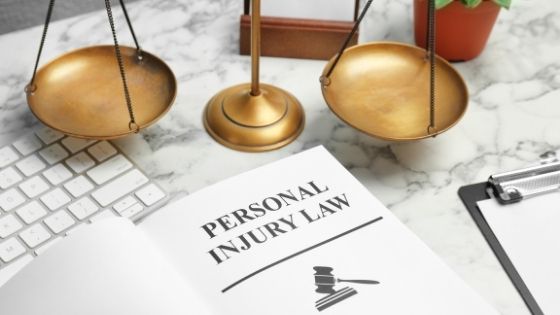If you have been involved in a car accident or injured on the job, it can be hard to know what to do. You can get overwhelmed with all the legalities and medical procedures that need to take place before you can get back on your feet.


You might not even know where to begin. This guide will help clarify some of these issues and give you an idea of how everything works to feel more confident about dealing with them yourself when they come up again in the future.
● Know Your Rights and What You Can Expect
For instance, if you are in the military, it is essential to know your rights and expectations regarding injury while on duty or when facing medical malpractice. That’s because members of the armed forces have a different legal status than civilians do.
If you live in one of the states that recognize active-duty service as a “special circumstance,” then active duty military medical malpractice laws may provide additional protections for military personnel and their dependents; those provisions vary from state to state.
For example, California law provides special exemptions for active-duty personnel who work at least 20 hours per week at their jobs but receive treatment on base. In such cases, if an injury or illness occurs during treatment, active-duty personnel must file a claim with the state within six months of the injury or illness.
The federal military active-duty law is called “Preference,” It applies to active-duty service members injured through medical malpractice while attending any appointment under the direct control of the United States Government.
● Seek Medical Attention
Personal injury is a serious matter. As such, it’s essential to know what your options are when you find yourself in the midst of one. For example, you shouldn’t ever try to handle personal injury situations on your own without seeking medical attention first.
Why? Because doing so could cost you more money and time than if you had just gone straight to the doctor or hospital first thing.
And that makes sense because not only does going to the doctor ensure that any injuries are properly diagnosed and treated, but also that all necessary records will be available should there be a legal dispute down the road as well. So before handling any personal injury situation on your own, always seek medical attention first!
● Document the Injury, Location of Injury, Time of Injury, Witnesses to the Incident
It is essential to document the above information because it will help determine who may be at fault. This information can also come in handy when filing a lawsuit or seeking compensation for your injuries.
Some people may think that it’s not worth their time to gather this information, but they could be missing out on an opportunity for restitution. You must document all the required data. The aim is to prevent the questions about what happened during the accident or how severe your injuries were after healing from them.
Gathering this information does not guarantee success. But it will give you more options than if you don’t take any steps toward justice and complete recovery for your pain and losses.
● Seek Legal Help if Necessary
If you get hurt in an accident or find yourself in medical trouble and there is any chance that it is the other party is at fault, it’s essential to get legal help before doing anything else.
The first step may be to contact your insurance company or employer for advice about proceeding with the claim. If they are not helpful, contact a personal injury attorney as soon as possible. You also might look into filing a lost medical records lawsuit.
Personal injury attorneys can advise you on your rights under state law. They will help you navigate the claims process, even if the other party denies responsibility for their actions. The sooner you take these steps, the better off you should an insurer deny benefits or if litigation becomes necessary later on down the line.
Conclusion
Personal injury is no joke. If you find yourself in this situation, it’s essential to take the appropriate steps for your safety and well-being first. A professional attorney can help guide you through some of these decisions, which will lead to more peace of mind.
From documenting evidence on the scene to obtaining medical care immediately following an accident or assault to gathering information from witnesses if possible, many things may need your attention right away after something awful happens to you.









